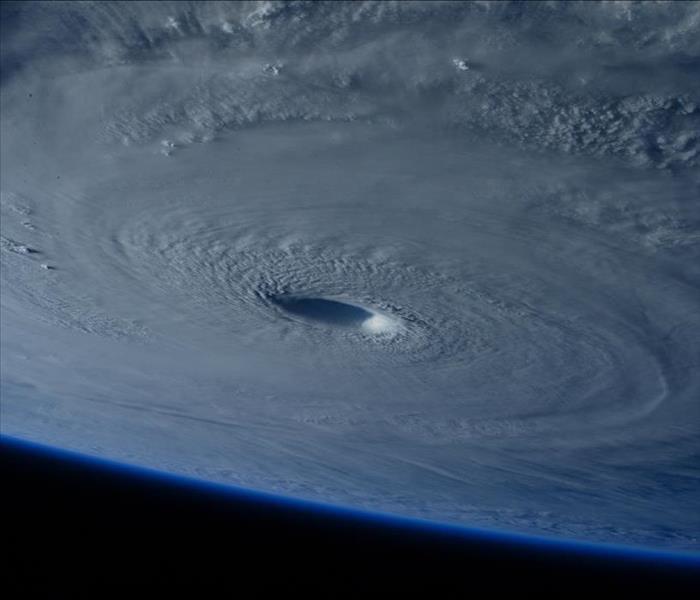Why Is September Peak Hurricane Season?
9/16/2022 (Permalink)
 Property owners should continue preparedness efforts for storm activity, even as we enter the latter portion of hurricane season.
Property owners should continue preparedness efforts for storm activity, even as we enter the latter portion of hurricane season.
Just last week, weather.com posted an article referring to September as the “annual peak of Atlantic hurricane season.” According to the author, a senior meteorologist at weather.com, September 10th marked the statistical, climatological peak of hurricane season, which is “when the Atlantic Basin has had the most hurricanes and named storms over the course of history.” We know that hurricane season in the northern hemisphere lasts from June 1st through November 30th, according to NOAA. September 10th does not fall exactly in the middle of hurricane season, so what makes September peak hurricane season? Additionally, this blog will also explore the options property owners have when protecting their homes and businesses during peak hurricane season.
What Makes September Peak Hurricane Season?
The weather.com article points to several factors that increase the likelihood of hurricanes forming in the Atlantic during September, including “ocean water reaching its highest temperature, the atmosphere's ability to generate thunderstorms hitting its peak, and hostile shearing winds declining to a minimum,” as well as “tropical waves,” which peak in July and carry into September. Additionally, the author includes statistical data that illustrates the peak of hurricanes on or around September 10th, as well as 77% of named storms and 87% of hurricanes in an average hurricane season occurring in August, September, and October. From this information, it is clear that, while we are currently in the most active portion of hurricane season, hurricane prevalence stretches well into the next month. This means that residential and commercial property owners should continue preparedness efforts for storm activity, even as we enter the latter portion of hurricane season.
Hurricane Preparedness
The American Red Cross recommends that property owners prepare for two things before a hurricane: wind and flooding. To prepare for damaging winds caused by hurricanes, consider cutting back trees and bushes close to the property and secure windows with storm shutters. The best way to prepare for intense flooding is making sure that your gutters and drains are clear before the storm. Hurricanes, however, are a powerful force of nature and can cause unexpected property damage despite preventative measures. In the event that your residential or commercial property experiences storm damage in the aftermath of a hurricane, know that SERVPRO Team Wall is just a call away. At the first sight of damage, call SERVPRO of Hunt Valley and Harford County at (410) 229-0012 or visit our website to learn more about our professional Storm Damage Restoration services, Commercial Storm Damage Restoration, and our experienced Disaster Recovery/Large Loss Team. Trust SERVPRO to make it “Like it never even happened” after any emergency, large or small.





 24/7 Emergency Service
24/7 Emergency Service